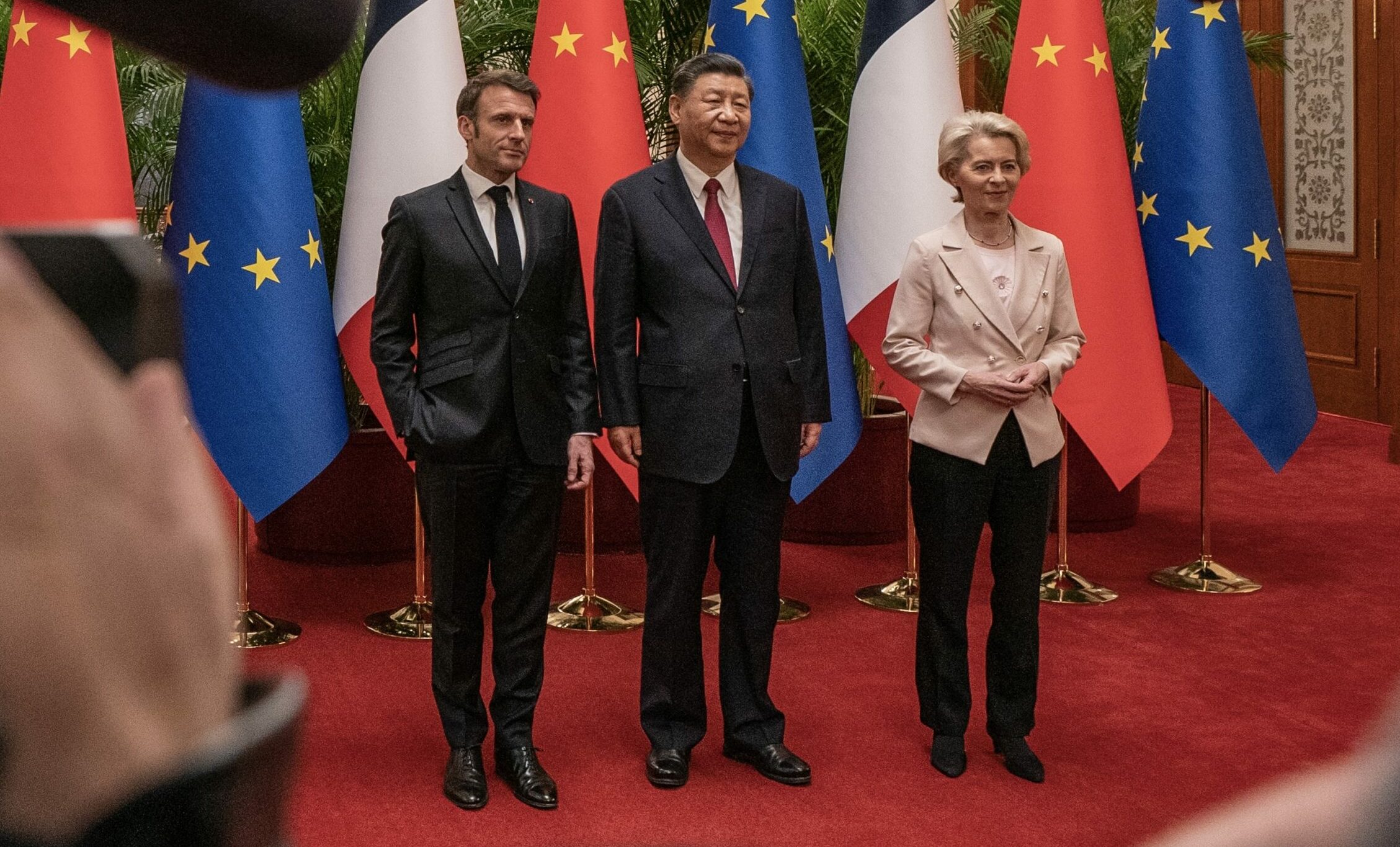What people say about Macron’s words about China in Germany

The German press and politicians criticized Macron's interview on the return plane from China. But the French president's words appeal to anti-American sovereignists. The article by Pierluigi Mennitti from Berlin
In Berlin they did not take very well the content of the interview granted by Emmanuel Macron to journalists, on the presidential plane returning to Paris after the trip to China . There is almost transversal discontent, in the majority as well as in the opposition, at least among the Christian Democrats, who then represent the largest and most relevant faction in the Bundestag.
MACRON'S PROTAGONISM HAS ANNOYED GERMANY
A disagreement that is based on the aerial declarations of the French president, but which somehow comes from further afield. Because the Germans tolerated Macron's protagonism on Chinese soil with some annoyance. While Berlin has to justify itself day in and day out for the intense commercial and political ties it has established with China over the last decade and develop complex disengagement strategies for its businesses, Macron can strut face to face with Xi Jinping, taking even behind as sparring partner the German president of the European Commission, Ursula von der Leyen.
And so, the declarations on European dependence on the United States, on the risk of vassalage and on the need for European sovereignty have opened a barrage which, if it hasn't yet involved the front ranks of the government, has engaged more or less well-known exponents of the Bundestag and the main newspapers of the country.
THE REACTIONS OF THE GERMAN PRESS
Starting with the Frankfurter Allgemeine Zeitung , the most authoritative newspaper, which in its editorial talks about Macron's "Gaullist moment", to move on to the Süddeutsche Zeitung , which entitles its with a direct "But what is that about?" and describes the Chinese visit as “a foreign policy bankruptcy”, ending up in Welt , the flagship of the conservative Springer publishing group, which uses as its title the caustic judgment of the former chairman of the Foreign Affairs Committee of the Bundestag, Norbert Röttgen: “Macron he seems to have lost his mind."
WHAT POLITICIANS SAY
And it is precisely from this sentence that the wave of criticisms from the German political front begins. Also because Röttgen, the most Atlanticist of the Bundestag deputies, is the head of foreign policy of the CDU and a faithful interpreter of the moods of Friedrich Merz's new party, committed to redesigning the Chinese Christian-Democrats' policy and making people forget the Merkelian years of long embrace with Beijing. For Röttgen, "Macron managed to turn his trip to China into a public relations coup for Chinese President Xi Jinping and a foreign policy disaster for Europe." The CDU exponent insists: “An attack on Taiwan would have become all the more likely the more Xi believed that Europe would have remained neutral in such a conflict. But we are not neutral."
Comments from the government front are also negative. The secretary general of the FDO, Bijan Djir-Sarai, highlighted how "Macron's position would not be a wise strategy for Europe, because we live in a dangerous world". And Metin Hakverdi, the foreign policy expert of the SPD, the chancellor's party, declared that it would be "a grave mistake" for the West to allow itself to be divided in relations with Beijing: "This weakens our Western community of values", he said, "with respect to China, the West, that is, Europe and the United States, must always try to act together, not divided."
Hakverdi then reiterated Germany's new coordinates in foreign policy, matured in the year that upset the world balance after the Cold War and perhaps even after the Second World War: the bitter lesson" of the war of aggression of Russia against Ukraine for the West is that “we need a critical approach to authoritarian states, including China, not naïve servility”.
THE FAR LEFT AND THE FAR RIGHT SYMPATHIZE FOR MACRON
The only voices sympathetic to Macron's statements came from the extreme left of Linke. But it is not improbable that some affinities have also spread on the opposite side of the German parliamentary alignment, that of the national-populist right of the AfD. Anti-Americanism and European sovereignty (albeit interpreted according to national conveniences) are elements not foreign to German political sentiment, but at least the establishment parties have remembered to keep away from them, especially since bombs and crawlers have returned to sow blood and terror in the Near East.
At the bottom remain the unresolved problems of a Europe that is struggling to find unity of purpose and behaviour, beyond the abundant pro-European rhetoric. The gap between the two countries which for decades have been – for better or worse – the engine of the European house is ever greater, as demonstrated by the divergence on the issue of structural reforms. And the one on China and relations with the US is just another chapter.
This is a machine translation from Italian language of a post published on Start Magazine at the URL https://www.startmag.it/mondo/macron-cina-reazioni-germania/ on Wed, 12 Apr 2023 05:39:36 +0000.
